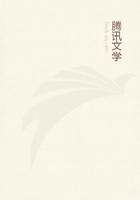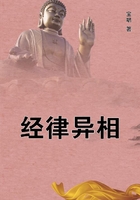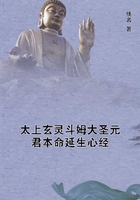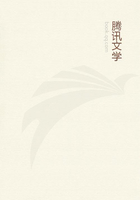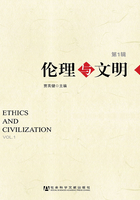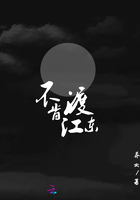Mrs. Irvine developed and perfected the policy which Miss Shafer had initiated and outlined. By 1895, all students were working under the new curriculum, and in the succeeding years the details of readjustment were finally completed. To carry out the necessary changes in the courses of study, certain other changes were also necessary; methods of teaching which were advanced for the '70's and '80's had been superseded in the '90's, and must be modified or abandoned for Wellesley's best good. To all that was involved in this ungrateful task, Mrs. Irvine addressed herself with a courage and determination not fully appreciated at the time. She had not Mrs. Palmer's skill in conveying unwelcome fact into a resisting mind without irritation; neither had she Miss Shafer's self-effacing, sympathetic patience. Her handling of situations and individuals was what we are accustomed to call masculine; it had, as the French say, the defects of its qualities; but the general result was tonic, and Wellesley's gratitude to this firm and far-seeing administrator increases with the passing of years.
In November, 1895, the Board of Trustees appointed a special committee on the schools of Music and Art, in order to reorganize the instruction in these subjects, and as a result the fine arts and music were put upon the same footing and made regular electives in the academic course, counting for a degree. The heads of these departments were made members of the Academic Council and the terms School of Music and School of Art were dropped from the calendar.
In 1896, the title Director of School of Music was changed to Professor of Music. These changes are the more significant, coming at this time, in the witness which they bear to the breadth and elasticity of Mrs. lrvine's academic ideal. A narrower scholasticism would not have tolerated them, much less pressed for their adoption.
Wellesley is one of the earliest of the colleges to place the fine arts and music on her list of electives counting for an academic degree.
During the year 1895-1896, the Academic Council reviewed its rules of procedure relating to the maintenance of scholarship throughout the course, with the result that, "In order to be recommended for the degree of B.A. a student must pass with credit in at least one half of her college work and in at least one half of the work of the senior year." This did not involve raising the actual standard of graduation as reached by the majority of recent graduates, but relieved the college of the obligation of giving its degree to a student whose work throughout a large part of her course did not rise above a mere passing grade.
In Mrs. Irvine's report for 1894-1895, we read that, "Modifications have been made in the general regulations of the college by which the observation of a set period of silent time for all persons is no longer required." In the beginning, Mr. Durant had established two daily periods of twenty minutes each, during which students were required to be in their rooms, silent, in order that those who so desired might give themselves to meditation, prayer, and the reading of the Scriptures. Morning and evening, for fifteen years, the "Silent Bell" rang, and the college houses were hushed in literal silence. In 189 or 1890, the morning interval was discontinued, but evening "silent time" was not done away with until 1894, nineteen years after its establishment, and there are many who regret its passing, and who realize that it was one of the wisest and, in a certain sense, most advanced measures instituted by Mr. Durant. But it was a despotic measure, and therefore better allowed to lapse; for to the student mind, especially of the late '80's and early '90's it was an attempt to fetter thought, to force religion upon free individuals, to prescribe times and seasons for spiritual exercises in which the founder of the college had no right to concern himself. As Wellesley's understanding of democracy developed, the faculty realized that a rule of this kind, however wise in itself, cannot be impressed from without; the demand for it must come from the students themselves. Whether that demand will ever be made is a question; but undoubtedly there is an increasing realization in the college world of the need of systematized daily respite of some sort from the pressure of unmitigated external activity; the need of freedom for spiritual recollection in the midst of academic and social business. It is a matter in which the Student Government Association would have entire freedom of jurisdiction.
In 1896, Domestic Work was discontinued. This was a revolutionary change, for Mr. Durant had believed strongly in the value of this one hour a day of housework to promote democratic feeling among students of differing grades of wealth; and he had also felt that it made the college course cheaper, and therefore put its advantages within the reach of the "calico girls" as he was so fond of calling the students who had little money to spend. But domestic work, even in the early days, as we see from Miss Stilwell's letters, soon included more than the washing of dishes and sweeping of corridors. Every department had its domestic girls, whose duties ranged from those of incipient secretary to general chore girl.
The experience in setting college dinner tables or sweeping college recitation rooms counted for next to nothing in equipping a student to care for her own home; and the benefit to the "calico girls" was no longer obvious, as the price of tuition had now been raised several times. In May, 1894, the Academic Council voted "that the council respectfully make known to the trustees that in their opinion domestic work is a serious hindrance to the progress of the college, and should as soon as possible be done away." But it was not until the trustees found that the fees for 1896-1897 must be raised, that they decided to abolish domestic work.

